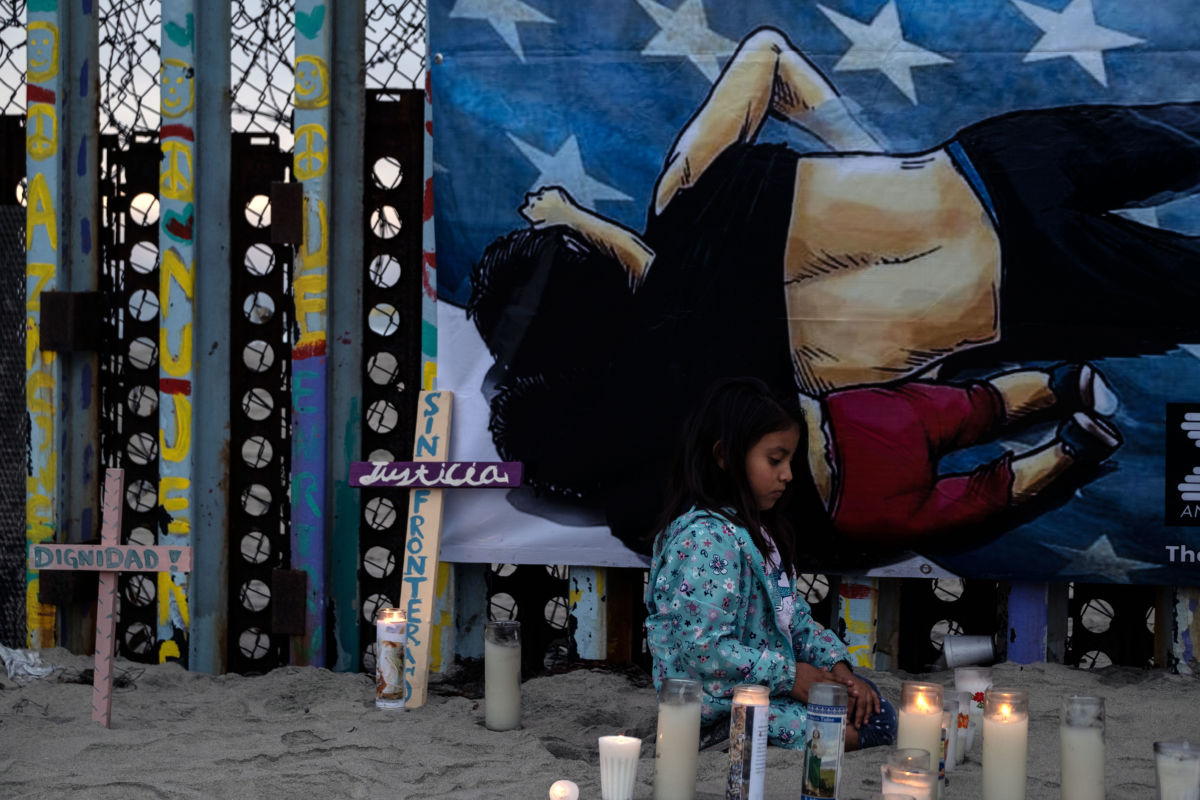The ACLU and other attorneys filed a federal lawsuit in the Arizona U.S. District Court Thursday “seeking damages on behalf of thousands of traumatized children and parents who were forcibly torn from each other under the Trump administration’s illegal practice of separating families at the border.”
The new lawsuit covers all forced separations from 2017 to present.
“The suffering and trauma inflicted on these little children and parents is horrific,” Lee Gelernt, deputy director of the ACLU’s Immigrants’ Rights Project, said in a statement. “Tragically, it could take years for these families to heal. Some may never recover, but we are fighting to give them a chance.”
The administration’s so-called “zero tolerance” policy was officially unveiled by former Attorney General Jeff Sessions in May of 2018 and, in another case brought by the ACLU, a federal judge issued a nationwide injunction against it and ordered the reunification of separated migrant families the following month.
In January of this year, the inspector general for the Department of Health and Human Services (HHS) confirmed in a report that President Donald Trump’s administration had separated thousands more children from their parents at the southern U.S. border than was previously known — dating back to July of 2017, almost a year before Sessions publicly introduced the policy.
Announcing the case on Thursday, the ACLU referenced an HHS inspector general report from last month which found that “according to program directors and mental health clinicians, separated children exhibited more fear, feelings of abandonment, and post-traumatic stress than did children who were not separated.”
“Separated children experienced heightened feelings of anxiety and loss as a result of their unexpected separation from their parents after their arrival in the United States,” the HHS report continued. “For example, some separated children expressed acute grief that caused them to cry inconsolably.”
A new report last month found separated children suffered from "acute grief that caused them to cry inconsolably," "believed their parents abandoned them," experienced "feelings of anger and guilt," and more.
We've sued for damages because reunions don't magically heal this. pic.twitter.com/RqKtzpBNTC
— ACLU (@ACLU) October 3, 2019
The children weren’t alone in enduring severe emotional trauma because of the administration’s policy of ripping apart migrant families in a bid to drive down immigration rates through fear. According to the ACLU, “Several parents attempted suicide, and some tragically occurred.”
Some separated families have since been reunited, but others have not. The ACLU noted that “the administration’s care and tracking for the separated children was so deficient that when a federal court finally ordered the government to reunify families, government officials were unable to identify which child belonged to which parent.”
Plaintiffs in the lawsuit, docketed as A.I.I.L. v. Sessions, include families from Guatemala and Honduras who were separated at Arizona-Mexico border. In one case, 13-year-old Karina was separated from her mother Lorena, “on Christmas Day, and kept handcuffed to control her as her mother was taken away and then subjected to the trauma of 16 months of separation, without any regard for her preexisting mental health issues.”
Three-year-old Beatriz was taken from her father Jairo “after watching U.S. immigration officials violently remove another child from her mother. Later, Beatriz was physically abused by her caretaker while in the custody of the U.S. government,” the complaint says. Six-year-old Andrés “was torn kicking and screaming from the arms of his father,” Jacinto, “as Jacinto struggled to make uninterested guards aware of Andrés’ heart murmur. Jacinto was deported without Andrés, and Andrés did not see his father again for nearly 10 months.”
For the lawsuit, The Associated Press reported Thursday,
the ACLU wants class action status, meaning if it wins, thousands of families who are not plaintiffs can also be compensated. Attorneys didn’t list a dollar amount requested, but have also filed complaints with the Department of Homeland Security that seek $3 million per family. Those complaints could be eventually tied into this lawsuit.
“We think that the family separations was so extreme and so unprecedented that if ever there was a case warranting damages, it’s this one,” Gelernt told the AP. Gelernt added that he hoped families could use some of the money to get mental health assistance and “put their lives back together.”
The suit names several former and current Trump administration officials as defendants, including Sessions; HHS Secretary Alex Azar; former White House Chief of Staff and Homeland Security Secretary John Kelly; former Homeland Security Secretary Kirstjen Nielsen; and Stephen Miller, a senior adviser to the president.
Join us in defending the truth before it’s too late
The future of independent journalism is uncertain, and the consequences of losing it are too grave to ignore. To ensure Truthout remains safe, strong, and free, we need to raise $31,000 in the next 48 hours. Every dollar raised goes directly toward the costs of producing news you can trust.
Please give what you can — because by supporting us with a tax-deductible donation, you’re not just preserving a source of news, you’re helping to safeguard what’s left of our democracy.
